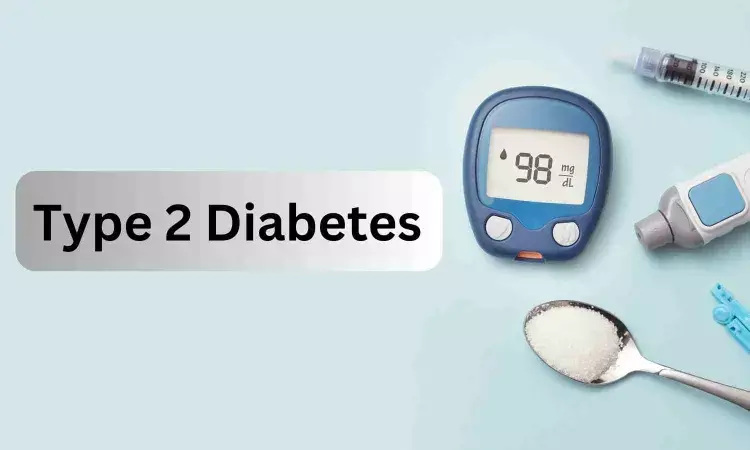- Home
- Medical news & Guidelines
- Anesthesiology
- Cardiology and CTVS
- Critical Care
- Dentistry
- Dermatology
- Diabetes and Endocrinology
- ENT
- Gastroenterology
- Medicine
- Nephrology
- Neurology
- Obstretics-Gynaecology
- Oncology
- Ophthalmology
- Orthopaedics
- Pediatrics-Neonatology
- Psychiatry
- Pulmonology
- Radiology
- Surgery
- Urology
- Laboratory Medicine
- Diet
- Nursing
- Paramedical
- Physiotherapy
- Health news
- Fact Check
- Bone Health Fact Check
- Brain Health Fact Check
- Cancer Related Fact Check
- Child Care Fact Check
- Dental and oral health fact check
- Diabetes and metabolic health fact check
- Diet and Nutrition Fact Check
- Eye and ENT Care Fact Check
- Fitness fact check
- Gut health fact check
- Heart health fact check
- Kidney health fact check
- Medical education fact check
- Men's health fact check
- Respiratory fact check
- Skin and hair care fact check
- Vaccine and Immunization fact check
- Women's health fact check
- AYUSH
- State News
- Andaman and Nicobar Islands
- Andhra Pradesh
- Arunachal Pradesh
- Assam
- Bihar
- Chandigarh
- Chattisgarh
- Dadra and Nagar Haveli
- Daman and Diu
- Delhi
- Goa
- Gujarat
- Haryana
- Himachal Pradesh
- Jammu & Kashmir
- Jharkhand
- Karnataka
- Kerala
- Ladakh
- Lakshadweep
- Madhya Pradesh
- Maharashtra
- Manipur
- Meghalaya
- Mizoram
- Nagaland
- Odisha
- Puducherry
- Punjab
- Rajasthan
- Sikkim
- Tamil Nadu
- Telangana
- Tripura
- Uttar Pradesh
- Uttrakhand
- West Bengal
- Medical Education
- Industry
SGLT-2 Inhibitors Linked to Lower Epilepsy Risk in Type 2 Diabetes: Study

A recent population-based study published in Diabetes Care suggests that sodium-glucose cotransporter 2 (SGLT-2) inhibitors, commonly prescribed for type 2 diabetes, may also confer neuroprotective benefits by reducing the risk of epilepsy.
The study found that the use of SGLT-2 inhibitors was associated with a 29% lower incidence of epilepsy compared to dipeptidyl peptidase 4 (DPP-4) inhibitors.
SGLT-2 inhibitors function by inhibiting glucose reabsorption in the kidneys, thereby lowering blood glucose levels. Beyond their glycemic effects, these agents have demonstrated cardiovascular and renal benefits.
The observed reduction in epilepsy risk may be attributed to the modulation of neuronal excitability and inflammation, though further research is needed to elucidate the underlying mechanisms.
The study's findings highlight the potential of SGLT-2 inhibitors to provide additional benefits beyond glucose control in individuals with type 2 diabetes. However, the authors note that more studies are necessary to confirm and replicate these results.
Reference:
Houyu Zhao, MD, PhD, et al. (2025). Association Between Use of Sodium–Glucose Cotransporter 2 Inhibitors and Epilepsy: A Population-Based Study Using Target Trial Emulation. Diabetes Care, 48(5), 827–835. https://doi.org/10.2337/dc24-2532
Dr. Shravani Dali has completed her BDS from Pravara institute of medical sciences, loni. Following which she extensively worked in the healthcare sector for 2+ years. She has been actively involved in writing blogs in field of health and wellness. Currently she is pursuing her Masters of public health-health administration from Tata institute of social sciences. She can be contacted at editorial@medicaldialogues.in.
Dr Kamal Kant Kohli-MBBS, DTCD- a chest specialist with more than 30 years of practice and a flair for writing clinical articles, Dr Kamal Kant Kohli joined Medical Dialogues as a Chief Editor of Medical News. Besides writing articles, as an editor, he proofreads and verifies all the medical content published on Medical Dialogues including those coming from journals, studies,medical conferences,guidelines etc. Email: drkohli@medicaldialogues.in. Contact no. 011-43720751


